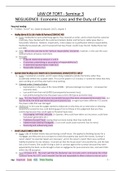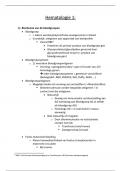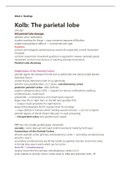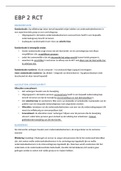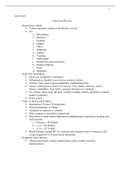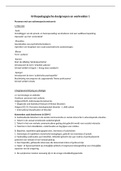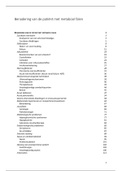NEGLIGENCE: Economic Loss and the Duty of Care
Required reading:
• P Giliker, Tort (6th ed., Sweet & Maxwell, 2017), chapter 3
• Hedley Byrne & Co Ltd v Heller & Partners [1964] AC 465
Facts: Hedley Byrne were advertising agents, they received an order, and to check that the customer
could pay, they checked with the customers bankers (Heller and Partners). Heller gave them a
favourable reference. However, importantly, it was subject to a qualification without responsibility.
Hedley Byrne placed ads, and it transpired that Easy Power couldn’t pay the bill. Hedley Byrne lost
£17,000.
Held: HB lost the case due to the ‘without responsibility’ disclaimer, however, in the case the court
outlined where someone could claim.
Principle:
o A special relationship between C and D.
o A voluntary undertaking or assumption of responsibility by D.
o A statement/representation made by D.
o Reasonable reliance by C.
• Spartan Steel & Alloys Ltd v Martin & Co (Contractors) Limited [1973] 1 QB 27
Facts: Cl worked at a smelter, and D’s were doing roadworks outside the factory when they
accidentally drilled into a power cable. This cut the power in Cl’s factory. It ruined the metal that they
were working on and they also had to stop working.
Claimed under 3 heads of value:
o Depreciation in the value of the metal (£368) – [physical damage to property – consequential
economic loss];
o Lost profit from that melt (£400) [consequential economic loss];
o Lost profits during the time the power was cut (£1,767) [pure economic loss].
Held: First two heads of value were recoverable because they were consequential economic loss, but
not the third, the third was held to be pure economic loss. It might have been different if Cl owned
the power cable that was damaged.
Additional: In this case the judges started to elaborate on why they are so restrictive on allowing
recovery for economic loss. Lord Denning gave first 4 of these in this judgement (but are they
convincing because they could apply to Personal Injury too):
o Encouraging ‘self-help’ attitudes. [In Spartan, they could have taken out insurance, could have
had power generators etc.]
o Problems of proof/ fraud [saying they lost more money than they really did]
o Indeterminate liability/ floodgates. [1 car crash could cause economic loss to many]
o Deserving and undeserving cases.
• Smith v Bush [1989] 2 WLR 790
Facts: Lady of modest means was purchasing a small house. She applied to Building Society for a
mortgage, and they sent out a surveyor to check the property was worth the money. Surveyor’s
report stated ‘no essential repairs are necessary’, and in the valuer’s report there was a without
liability disclaimer for any reliance. It turned out that the house wasn’t structurally fine, and the lady
lost a lot of money. She couldn’t bring a claim in contract against the surveyor because they were
appointed by the bank, so she brought a claim in negligence for pure economic loss, and said it falls
within the HB exception.
Held: In favour of Cl. The court said that the disclaimer was not valid, and it contravenes the Unfair
Contract Terms Act 1977, and it wouldn’t be fair and reasonable to allow a valuer to rely on such a
Key: Important Cases Acts Wider Reading -1-

